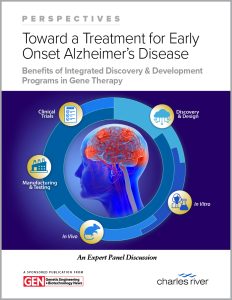 When small companies have big ideas that could benefit countless patients, they must find partners to expand the spectrum of their expertise and infrastructure to help them test these ideas and facilitate their speedy translation to therapeutics. The key driver in this process is the need of patients who are quickly running out of time, and the prime considerations for both parent and partnering companies are efficacy and safety of the therapeutic.
When small companies have big ideas that could benefit countless patients, they must find partners to expand the spectrum of their expertise and infrastructure to help them test these ideas and facilitate their speedy translation to therapeutics. The key driver in this process is the need of patients who are quickly running out of time, and the prime considerations for both parent and partnering companies are efficacy and safety of the therapeutic.
Here we have the CSO and director of research of a startup biotech company, Paros Bio, and experts from their partnering contract research organization (CRO), Charles River, discussing the specifics of their work and productive partnership. Paros Bio, driven by their mission of bringing a novel gene therapy to young patients suffering from a devastating form of Alzhei-mer’s disease (AD), must balance scientific rigor and expense, when seeking a worthy partner.
On the other hand, Charles River, committed to their client’s mission, must continue to enhance and retain their range of expertise while understanding and meeting the specific needs of diverse projects. This discussion focuses on the emergence of Paros Bio, the science behind their PSEN1 program for Autosomal Dominant Alzheimer’s Disease (ADAD), and the perspectives from experts at both companies on the nature of their work and alliance.
Beyond key lessons that can be gleaned from a history of the disease, and the challenges of developing novel therapeutic strategies in the wake of others that have failed, this expert panel discussion provides a glimpse into the intricacies of developing communication and trust among scattered stakeholders and the ability to prioritize scientific rigor, time, and cost in the face of inevitable setbacks in the practice of cutting-edge science.
Sponsored by:

